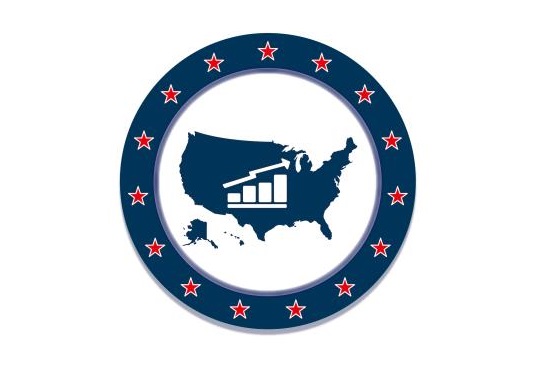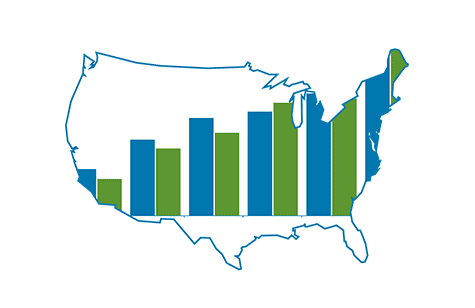For more than four decades, three ACL-funded projects have collected national longitudinal data about the services provided to people with intellectual and developmental disabilities (I/DD) — data used to identify needs, guide policy, and inform stakeholders' decisions.
Each project is led by one of ACL's 68 University Centers on Excellence in Developmental Disabilities (UCEDDs). Together, UCEDDs form a national network that provides technical assistance, community education, direct services, research, and information dissemination.
An important component of these projects is sharing data — and making it understandable and usable for people with I/DD, their families, and the public. To that end, in 2024, the three projects teamed up on the "5 Questions" initiative. Each answered five unique questions about people with I/DD and the home and community-based services that support them in living, working, and fully participating in their communities.
Each project's "5 Questions" data are published on its website. We've linked to them below.

RISP
The National Residential Information Systems Project (RISP), run by the University of Minnesota's Institute on Community Integration, analyzes trends in Medicaid, state, and locally funded residential and in-home supports.
- How many people have I/DD?
- How many people with I/DD get paid supports?
- Where do people who get paid supports live?
- How do the places people live differ by age and by state?
- How have the places people with I/DD live changed?

State of the States
StateData, a project of ThinkWork! at UMass Boston's Institute for Community Inclusion, assesses the employment and economic status of people with disabilities and the effectiveness of state and vocational rehabilitation agencies.
- How much money do states spend on people with I/DD?
- What technology supports do people with I/DD get?
- How has spending (fiscal effort) changed over time?
- How much do states pay for different kinds of services?
- How does spending differ across states?

StateData
The State of the States in I/DD Project, run by the University of Kansas, studies trends in I/DD community services and supports, public and private institutions, fiscal expenditures in states, and demand for services and supports.
- How many people with I/DD have competitive integrated jobs?
- How do competitive integrated employment outcomes compare with people with and without disabilities?
- How has participation in state I/DD agency employment and day services changed over time?
- How does participation in integrated employment services differ by state?
- How many people with I/DD find jobs with help from state vocational rehabilitation agencies each year?

